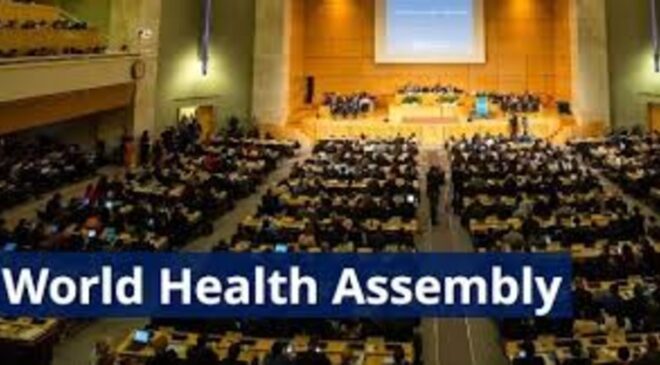
The World Health Assembly, WHA
GENEVA/Switzerland: As global health leaders gathered in Geneva last week for the 78th World Health Assembly, a central theme emerged: the need to prioritize women’s, children’s, and adolescents’ health (WCAH) in a tightening aid landscape. Despite limited resources, delegates from around the world emphasized the urgency of placing WCAH at the forefront of national and regional agendas.
At a key event co-hosted by the Partnership for Maternal, Newborn & Child Health (PMNCH) and the Global Leaders Network for Women’s, Children’s, and Adolescents’ Health (GLN), South Africa’s Health Minister Dr. Aaron Motsoaledi made a resounding call for political unity and cross-border collaboration. “There is an increasing role we can and must play regionally, aligning efforts and collaborating,” he said. “This is why we are very proud to provide the highest political support through the Global Leaders Network. Led by President Ramaphosa and supported by other sitting heads of state, ministers and ambassadors, the GLN advocates for achieving the SDG targets for WCAH.”
Discussions throughout the Assembly laid bare the continuing global disparities in child survival. In 2023, one in every 15 children in Sub-Saharan Africa died before their fifth birthday—a mortality rate 14 times higher than in high-income countries. The region remains nearly two decades behind the global average, which had already reached that level by 2004. Meanwhile, adolescents in low- and middle-income countries continue to face widespread barriers to accessing sexual, reproductive, and mental health services.
Speaking on behalf of 47 WHO African Region member states, Angola delivered a firm statement on the WHA agenda item concerning the Global Strategy for WCAH. “Despite progress, the main causes of maternal, newborn and child death are preventable,” the statement noted. “We must work jointly to set the progress and recognize the setbacks.” The declaration also stressed the critical need for increased regional cooperation, improved health financing, and sustainable investment in resilient health systems.
In a bid to accelerate implementation, the GLN, PATH, and PMNCH brought together top-level officials from global and regional organizations, including the European Union, the Asian Development Bank, PAHO, Africa CDC, the G20, and Oman’s Ministry of Health. The high-level dialogue focused on strengthening national WCAH data systems and devising strategic follow-up measures for targeted countries.
These renewed calls for action reflect WHA78’s broader commitments, particularly the revitalized strategic partnership between the African Union and the World Health Organization. That collaboration aims to bolster reproductive, maternal, neonatal, child, and adolescent health (RMNCAH) as a continental and global priority.
Participants reiterated their commitment through the Global Leaders Network, emphasizing the necessity of political will, sustained advocacy, and a rights-based approach that spans the life course. They concluded with a unified push for equity-driven policies and firm, long-term engagement at all levels.
